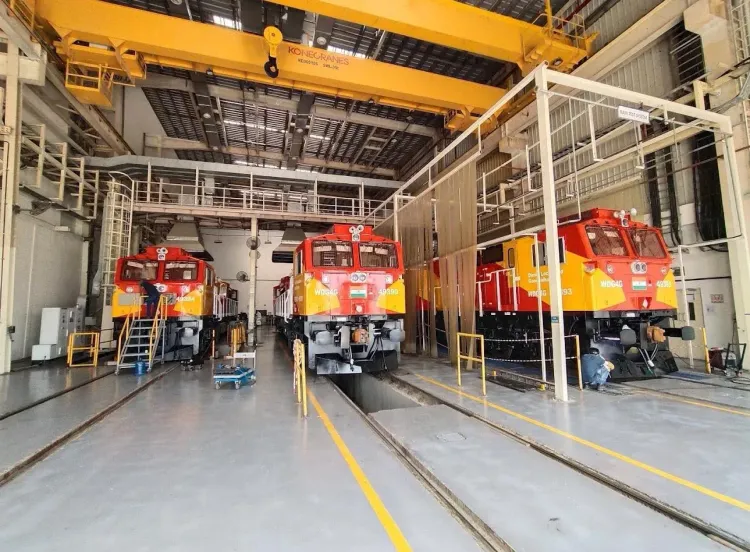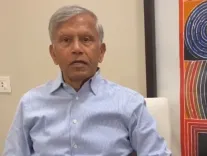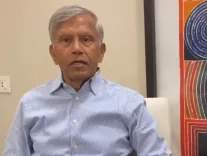Did Siemens Outbid Alstom in a Fair Tender Process for Electric Locomotives?

Synopsis
Key Takeaways
- Siemens secured the tender for the Dahod factory.
- The tender process was transparent and competitive.
- Both Siemens and Alstom are established manufacturers.
- 89% of components are made in India.
- Maintenance will occur at four depots.
New Delhi, June 23 (NationPress) The Ministry of Railways confirmed on Monday that Siemens and Alstom are leading manufacturers of electric locomotives worldwide, both capable of designing and producing 9000 hp electric locomotives. They participated in the tender for the Dahod factory in 2022.
“Siemens emerged victorious in the tender as they offered the most competitive price,” stated a ministry official.
In response to inquiries about the 2022 bidding process for locomotive manufacturing in Dahod, the Ministry emphasized that the tender was conducted in a transparent manner.
The evaluation was carried out by a dedicated team of technical and financial experts, adhering to the established protocols of Indian Railways. Both Alstom and Siemens scored equally during the technical assessment. However, the contract was awarded to the bidder with the lowest financial offer, as per the Ministry of Railways’ statement.
The pricing determined through this open process is notably competitive. The contract aligns with the tender documents, and there have been no alterations to the tender conditions, as per the official announcement.
The entire tendering procedure was managed by skilled officers well-versed in technical and financial matters, complying with existing regulations. There are no conflicts of interest, as the process adhered strictly to Indian Railways’ established rules and procedures.
The Ministry also clarified that the Minister of Railways has no involvement in the evaluation of tenders. Since 2016, Railway Ministers do not approve tenders; all approvals are now managed by authorized Railway Board Members and zonal units, ensuring total transparency, impartiality, and proper delegation of authority. Furthermore, both Siemens and Alstom have long-standing relationships with Indian Railways.
Over the last twenty years, Indian Railways has shifted towards life cycle cost-based procurement to enhance product reliability and passenger safety, according to the statement.
Currently, approximately 89 percent of the components used in the manufacture of Dahod locomotives are produced in India. The railway component manufacturing ecosystem in India is rapidly expanding.
A locomotive is a highly intricate machine, with equally complex components sourced from various locations across India and supplied to diverse manufacturers. Very few countries possess the level of component manufacturing that India has achieved due to the emphasis placed on manufacturing over the past decade, the statement noted.
The locomotives produced at Dahod will be serviced at four depots: Visakhapatnam, Raipur, Kharagpur, and Pune, the statement concluded.







